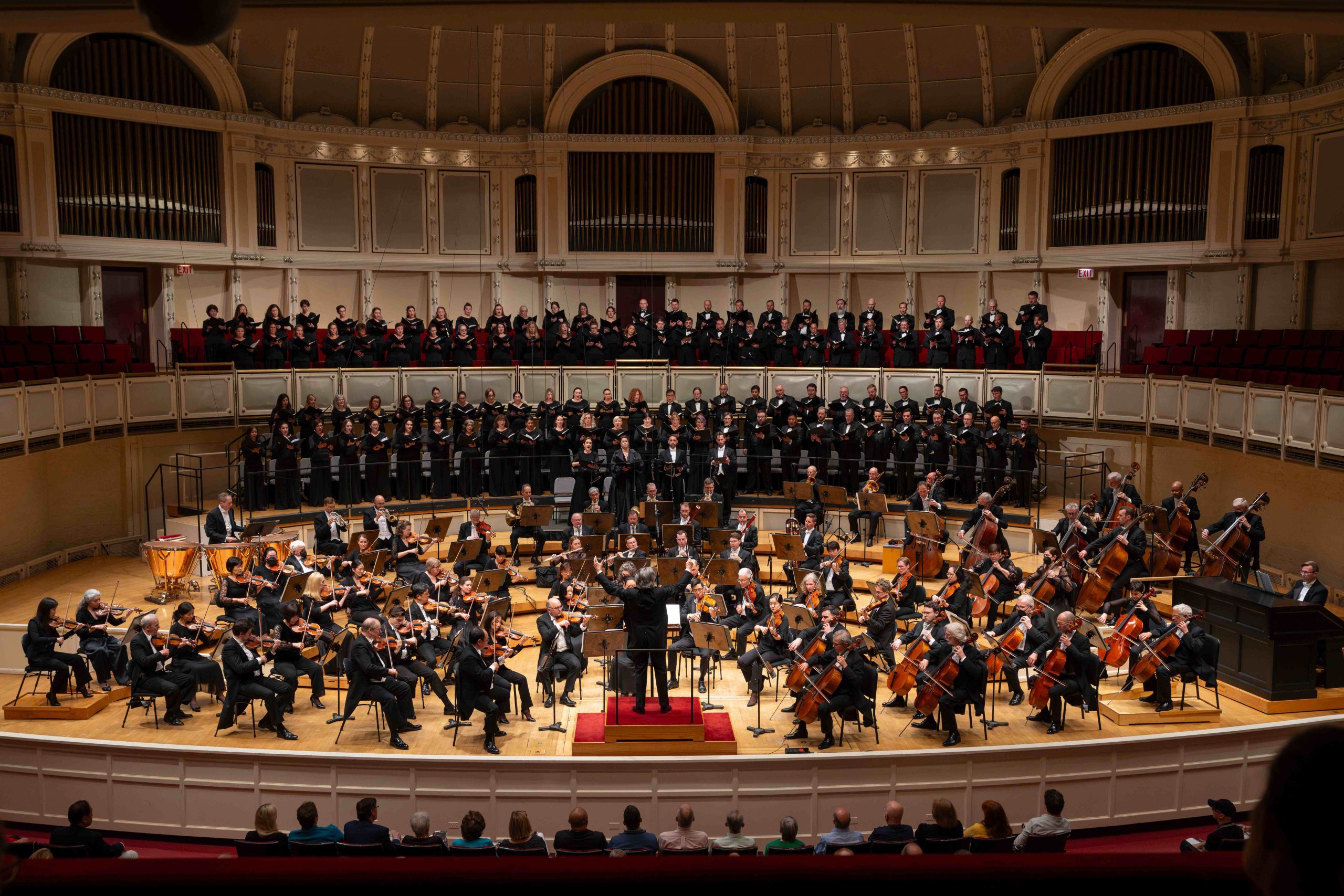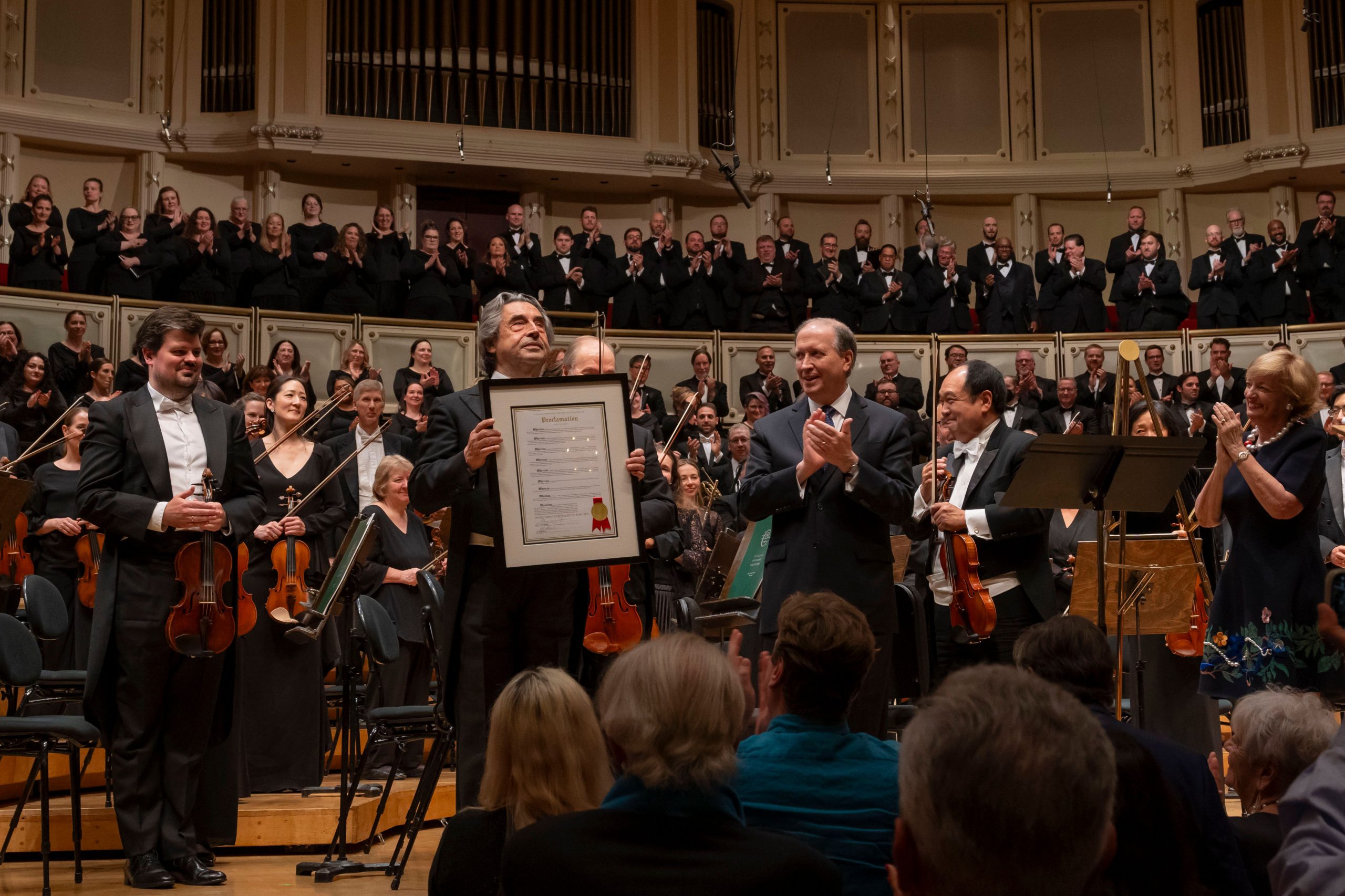Reviews
Muti Caps His CSO Reign with Monumental Beethoven
CHICAGO—In April 1991 Georg Solti wrapped up his 22-year tenure as music director of the Chicago Symphony Orchestra with two blockbuster programs: a concert version of Verdi’s complete Otello with a cast headed by Luciano Pavarotti and Kiri Te Kanawa. And the world premiere of a CSO-Carnegie Hall co-commission, Michael Tippett’s Byzantium with Jessye Norman as soloist.
In June 2006, his successor, Daniel Barenboim bid Chicago farewell with a different kind of blockbuster: a marathon of Ninths. Over three nights, he led the CSO in the ninth symphonies of Beethoven, Mahler and Bruckner, plus some Elliott Carter and Pierre Boulez works for added spice.
Over the weekend Riccardo Muti, the CSO’s current music director, concluded his 13 years in the post with yet another kind of blockbuster: a deep, insightful dive into one of the most monumental works in the repertoire: Beethoven’s Missa solemnis. Joining the CSO and the Chicago Symphony Chorus, prepared by Donald Palumbo, were top-flight soloists Erin Morley, soprano; Alisa Kolosova, mezzo-soprano, Giovanni Sala, tenor, and bass-baritone Kyle Ketelsen.

Full forces assembled onstage at Symphony Center for Muti's performances of Beethoven's Missa solemnis
Under Muti the CSO has once again become one of the world’s most reliably superb musical ensembles. The precision that Solti honed to high brilliance is now virtually infallible. But it emerges in a sound world full of expressive flow and lush, satiny phrasing. Muti is perhaps the world’s leading Verdi conductor, and the CSO has performed five complete Verdi operas under his baton. It now performs with a seemingly spontaneous, singing line that takes us into the very heart of whatever music it plays. The result Friday night, the first of three Missa solemnis performances in Symphony Center, was a hauntingly personal exploration of faith and hope.
With his emphatic rhythms and short, often sharp-edged melodic ideas, Beethoven can become a bit of a battering ram. We can feel pummeled as myriad bits and pieces of melody bounce at top speed, and often at top volume, from one orchestral section to the next. Portions of the Latin mass, with the Credo’s stirring declaration of faith and the Gloria’s ecstatic words of praise, all but invite high-energy bombast.
But bombast was nowhere to be found in the CSO’s performance. Now 81, Muti says he has been studying the Missa solemnis for 50 years but never felt ready to conduct it until now. He first performed it at the 2021 Salzburg Festival with the Vienna Philharmonic.
 The wait has been worth it. With the help of his peerless musicians, Muti has brought ideas honed by a lifetime of experience—the pleasures and pain, the grief and the joy of everyday living—to his performance of one of Beethoven’s most complex scores.
The wait has been worth it. With the help of his peerless musicians, Muti has brought ideas honed by a lifetime of experience—the pleasures and pain, the grief and the joy of everyday living—to his performance of one of Beethoven’s most complex scores.
The magic started in the work’s very first bars Friday night. The Kyrie called us to attention with short, forceful chords, but they were neither harsh nor coercive. The slow, gentle orchestral melodies that followed seemed to unfurl from the very core of those mighty chords. This was not a matter of a pitiful human soul groveling before an aloof power. As the Kyrie shifted between forceful outbursts and flexible, melodic song gorgeously shaped by the eloquent chorus, the musical flow was seamless. Soloists interjected short lines, sections of the chorus passed musical phrases among themselves, instrumental solos came and went. The energy level was highly charged but always underscored by a sense of serenity. This Lord was all-powerful, Beethoven told us. But he would seriously consider our pleas for mercy.
This particular Missa is indeed solemnis, but the orchestral interludes in the Sanctus were touchingly intimate. The violin solos of CSO concertmaster Robert Chen were heart-breakingly innocent, his melodic lines clearly but gently shaped. Solos from principal flute Stefán Ragner Höskuldsson floated in like celestial messages.
Since its founding in 1957 by Margaret Hillis, the Chicago Symphony Chorus has been every bit the CSO’s equal in terms of musical excellence. Passing melodic lines from one voice part to another in the Gloria’s fugues, the handoffs were as smooth and elegant as an Olympic relay runner’s baton pass. In the final moments of the Credo, the chorus effortlessly shifted from the wildly triumphal Amen section into hushed phrases that floated into the ether.
One remarkable element of Friday’s performance was Muti’s impeccable control of musical balance. Even roaring at full tilt in the work’s most frenzied sections, the orchestra never overpowered the chorus or the soloists. Morley’s bright, ringing soprano, Kolosova’s rich, focused mezzo, Sala’s virile tenor, and Ketelsen’s commanding bass-baritone were always clearly etched. In quiet sections, the chorus had room to breathe. But when Beethoven was at his most exuberant, when everyone on stage was letting it rip, this was an ensemble of equals.
After the standing ovation and prolonged cheers, Jeff Alexander, president of the CSO, read a proclamation listing Muti’s accomplishments with the orchestra and naming him music director emeritus for life. In relaxed, jokey remarks to the audience, Muti emphasized that his Missa solemnis performances were not farewell concerts. He will be back for six weeks during each of the next two seasons and lead the CSO in concerts at Carnegie Hall in the fall and a European tour next year. With no successor in place, Muti will be an outsized presence in Chicago for at least the next few years.
Strictly translated, arrivederci means “until we meet again,” not “goodbye.” So, Arrivederci, maestro Muti, e grazie mille. We look forward to seeing you again.
Middle photo: Muti shows his emeritus diploma to the audience; CSO President Jeff Alexander and concertmaster Robert Chen are to his right
Classical music coverage on Musical America is supported in part by a grant from the Rubin Institute for Music Criticism, the San Francisco Conservatory of Music, and the Ann and Gordon Getty Foundation. Musical America makes all editorial decisions.
Photos by Todd Rosenberg





 FEATURED JOBS
FEATURED JOBS

 RENT A PHOTO
RENT A PHOTO


